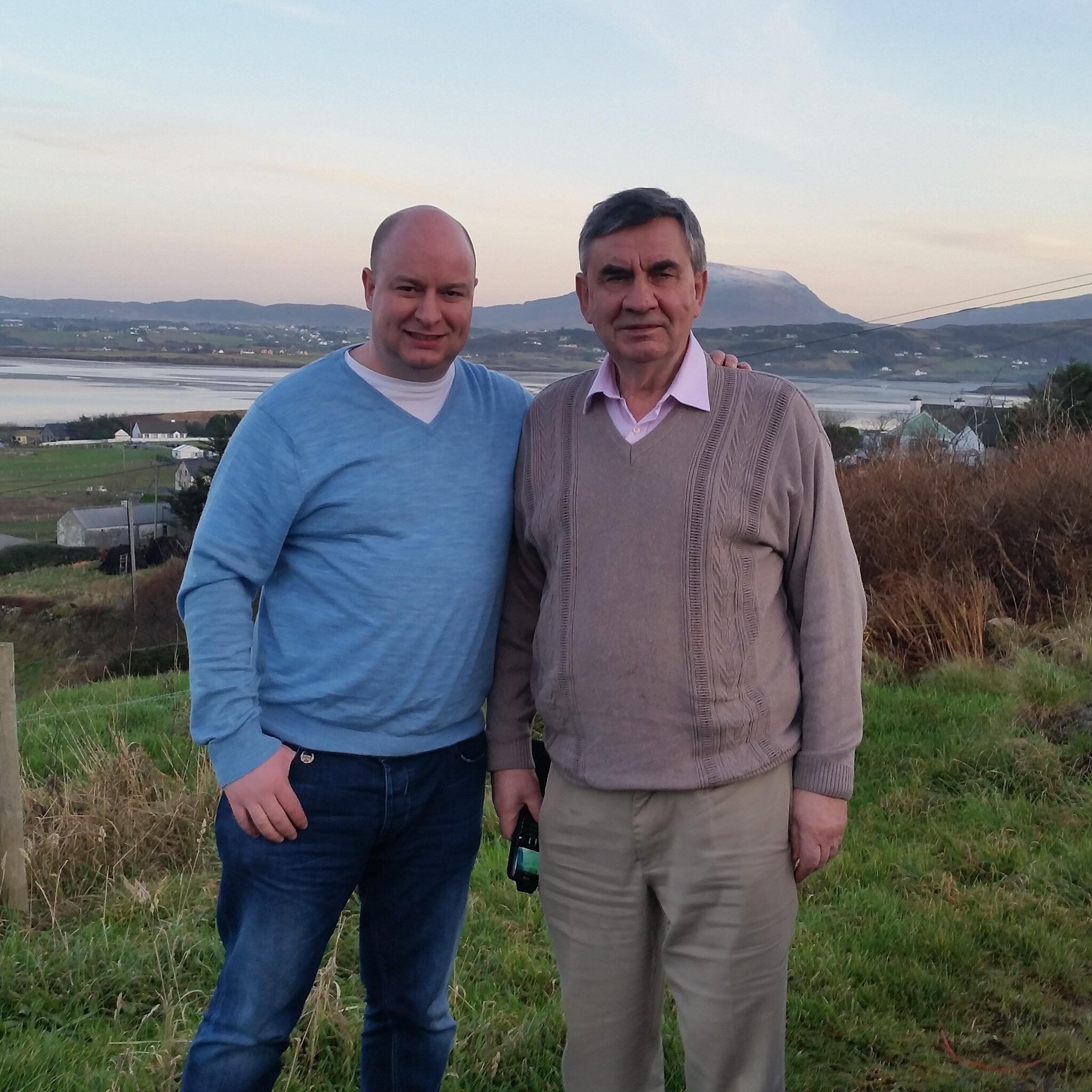Donal Ó Sé - The Passing Of A 1950s Veteran
Republican activists in South Dublin woke to the sad news last Thursday morning that the 1950's veteran Donal Ó Sé had passed away. Although Donal had lived in the same house on the Dundrum Road for the last forty years, his life story began far away in the village of Kilgarvan in South Kerry where he was born in 1937.
The hearse bearing the tri-colour draped coffin of Donal Ó Sé, flanked by a republican guard of honour, making the journey from Donal’s home to Milltown Church.
Donal’s earliest days on this earth were a time of simultaneous joy and tragedy for his family - joy in his arrival and tragedy in the passing of his mother who died in childbirth.
As was common with such tragedies at the time, family members stepped forward to help rear the infant Donal - in his case a childless aunt and uncle who had returned to Ireland after spending decades in the United States. While still a child tragedy again visited the young Donal’s life, with the death of his beloved Unlce Jim.
As the ten-year-old ‘man of the house’ Donal had to grow up fast, helping his adoptive mother Minnie with the many chores that came with running a small holding in 1940s Ireland. It was during these formative years that he developed both a strong work ethic and a deep hatred of injustice of every type.
The small holding where Donal Ó Sé grew up pictured today.
His republican beliefs too developed as he moved through his teenage years - influenced by the rich republican history of his native county and by his adoptive parents who had supported the republican cause from America during the revolutionary period.
At some point in his late teens Donal joined the Irish Republican Army, a fact that became known to all when he was arrested along with 37 other republican volunteers during training maneuvers in Glencree, Co Wicklow in 1957.
Among the detained repubilcan’s were many who went on to become well-known national political figures including Seamus Costelloe, Sean Garland, Proinseas De Rossa and Peter Pringle.
Donal Ó Sé pictured in 2019 at the republican monument at the Cúl na Cathrach ambush site at Baile Mhic Íre
Following a period of detention in Mountjoy Prison, Donal was moved to the internment camp in the Curragh, Co Kildare. The government of Eamon De Valera has introduced interment without trial earlier in 1957 in response to the IRA’s ill-fated ‘Operation Harvest’.
Unwilling to wait patiently for De Valera to release him, Donal took part in a mass prison break in December 1958. While many other prisoners were captured during the escape or shortly afterwards, Donal escaped the immediate area and remained at large until a general amnesty for all republican prisoners was introduced.
In the early 1960s Donal emigrated to England where he worked in the construction sector as a carpenter, until his republican activities attracted the attention of British police. A rapidly arranged trip back across the Irish Sea took Donal to Dublin where he gained employment with Dublin Corporation and met his future wife.
Donal Ó Sé remained a committed republican throughout the rest of his life as evidenced by his trade unionism, his love of Gaelic Games, traditional music and the Irish language. In the years leading up to his death Donal offered his support to Éirigí For A New Republic - the party he felt best represented the politics he believed in.
Eoin and Donal Ó Sé in happier times
Donal Ó Sé was a quiet, unassuming man of few words. That quietness was not borne out of shyness or lack of confidence. Quite the opposite. It was a quietness borne of a deep understanding of the modern world and an absolute belief in Irish republicanism.
Donal had no need to shout from the hilltops about his exploits or his politics. He knew exactly who he was and what he believed in. Like thousands of other republican activists of his generation he did what he did because it was the right thing to do and he did so without any expectation of fame or fortune.
His republicanism manifested itself in the support that he offered to friend and stranger alike - in his instinctive rallying against injustice - in his support for oppressed people across the globe - in his political campaigning - in the unconditional love that he gave to his family.
Éirígí For A New Republic takes this opportunity to offer our deepest condolences to Donal’s wife Geraldine, his son Eoin and to their wider family during this most difficult of times. Ar dheis Dé go raibh a anam.





